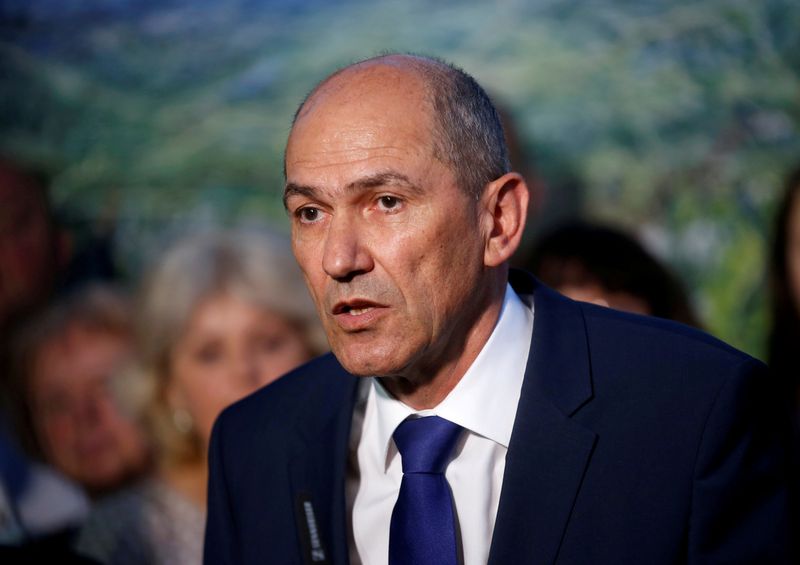
FILE PHOTO: Janez Jansa, leader of the Slovenian Democratic Party (SDS), speaks to the media and supporters after an election in Ljubljana, Slovenia, June 3, 2018. REUTERS/Borut Zivulovic/File Photo
February 3, 2020
By Marja Novak
LJUBLJANA (Reuters) – Slovenia’s centre-right Slovenian Democratic Party (SDS), the biggest in parliament, has invited all other parties in the assembly to coalition talks following the resignation of centre-left Prime Minister Marjan Sarec.
A week after Sarec quit, saying his minority coalition government lacked support in parliament to push through important legislation, the SDS said on Monday coalition talks would start on Friday.
“Most probably we are facing the fourth early election (in a row) but of course it is also possible that a new ambitious and majority government is formed for the rest of this mandate,” said SDS leader Janez Jansa, who is also an ex-prime minister.
Several parties have indicated they might be willing to join a government under the SDS although Jansa failed to form a government when his party emerged from the last election in 2018 as the NATO and European Union member state’s biggest party.
The SDS has 26 of the 90 seats in parliament. Potential allies include the centre-left Party of Modern Centre with 10 seats, conservative New Slovenia with seven seats and pensioners’ party Desus with five seats.
The centre-left SAB, which has five seats, has called for all parties except the SDS to explore whether it is possible form a government. It said parliament should be given a chance to change the electoral system to allow people to vote for candidates rather than parties.
Serac’s coalition included five centre-left parties and held 43 seats in parliament.
President Borut Pahor is due on Tuesday to start official talks with parliamentary parties and has until the end of this month to nominate a candidate for prime minister or tell the parliament he will not propose anyone.
If that happens, parliamentarians will have another 16 days to propose candidates. If the impasse continues, Pahor must call a snap election.
(Editing by Timothy Heritage)

